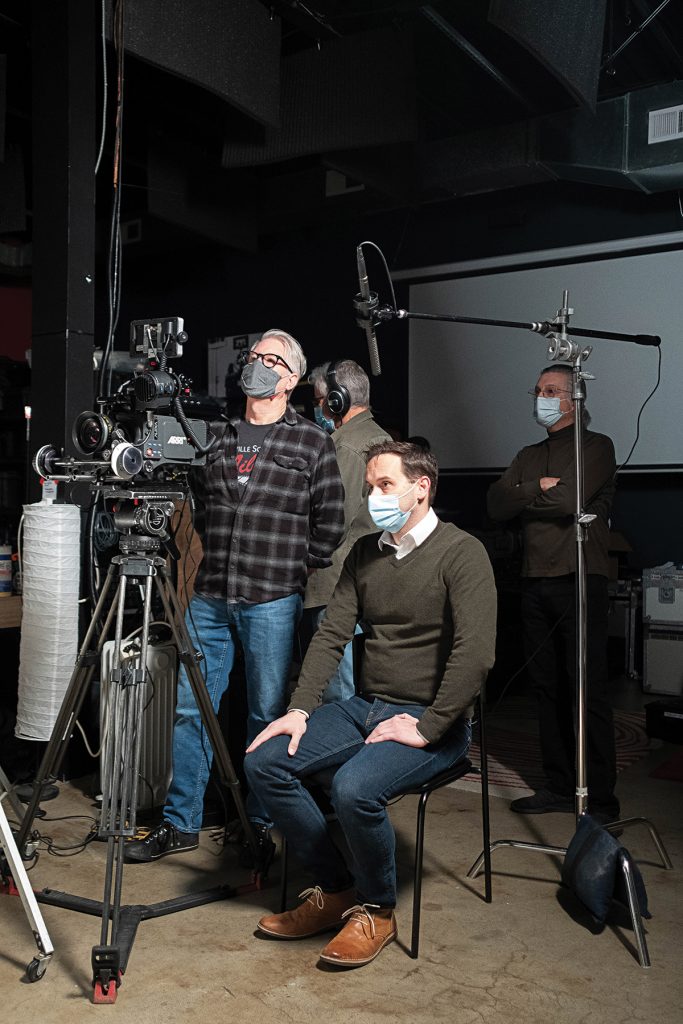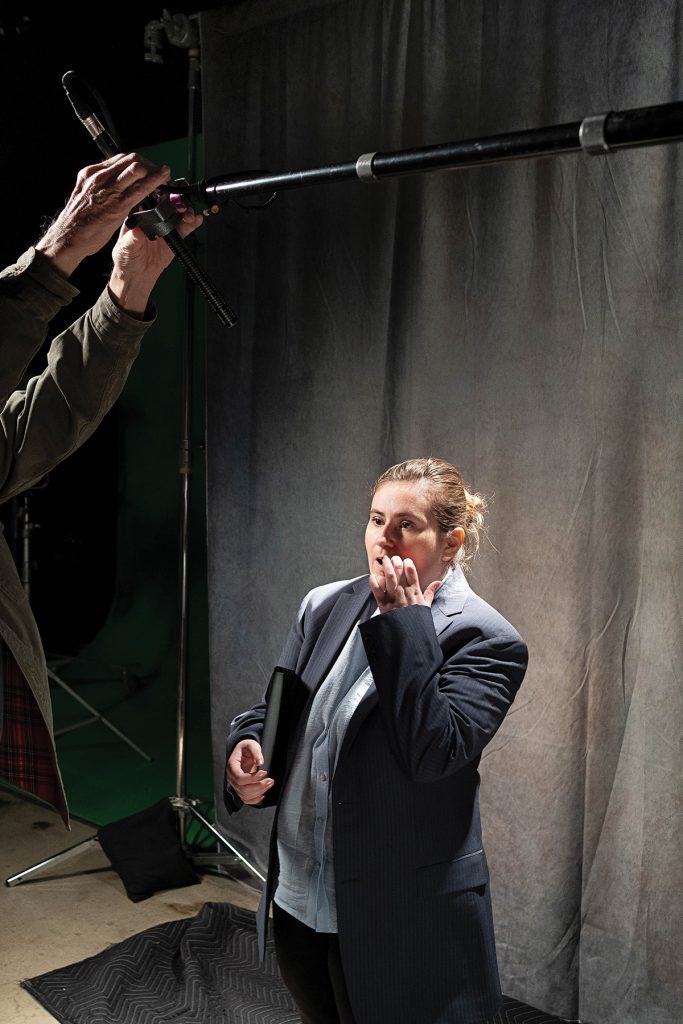
Photo by Brendan Hunt
Had Brad Hoover not wearied of a long commute down the mountain, the Asheville School of Film might never have come to fruition.
The filmmaker — whose immersion in the industry began in high school as a production assistant on a friend’s 16 mm short — learned on the job. Several jobs, in fact, and many roles — for traditional and digital film and working on commercials, television, and movies. Building his career on the West Coast, Hoover also taught filmmaking at the Seattle Film Institute. Lured to Western North Carolina by Blue Ridge Motion Pictures, he and his family relocated to Asheville in 2004. When that studio closed, he began teaching at the Seattle Institute’s new branch, the Carolina Film Institute, located in Greenville, SC.
“I was there for about six years, but I got tired of driving back and forth an hour each way to work,” he says. “I had always wanted to open my own school, with control over the environment and standards.”

Photo by Brendan Hunt
Filmmaking, like most arts, does not guarantee financial security, and it often takes years to build a viable career, Hoover points out. “The idea of charging a whole bunch of money that would require years to pay off, for a profession where the chances of great economic success are so unpredictable, did not set well with me.”
Rather than modeling his new school after full-time film institutes, Hoover planned individual, affordable classes of six to eight weeks. “We don’t call ourselves a career institute, though people can take what they learn here and transfer that to a career or a full-time program.”
Hoover found a building on South French Broad, on the fringe of downtown, and spent months retrofitting the space, building a green-screen wall — still the largest green screen in the region. A donation of equipment from a Boston transplant who had owned a production company was an unexpected boost. “I am very proud of our inventory of professional equipment,” Hoover says.
Classes focus on three areas: the production of films, taught by Hoover; post-production/editing; and screen and prose writing taught by professionals in that realm. Introduction to Filmmaking — the entry point for most students — begins with the basics: What is filmmaking? What techniques and tools are used, what do job titles mean and what are their responsibilities? Students are sent home with the charge to create a story idea. In class 2, those ideas are pitched, one is chosen by class vote, and the conceiver of the winning idea writes a short script.

Photo by Brendan Hunt
“There are lectures and PowerPoint presentations, but students primarily work on turning that script into a short film — they scout locations, cast it, shoot it, direct it, edit it, and do the mundane things like paperwork and record keeping,” explains Hoover.
Acting classes were added a couple years ago. Here, Hoover struck gold in his own backyard: Kelley Hinman, a graduate of the Neighborhood Playhouse School of the Theatre in New York City, studied directly with Meisner Technique creator Sanford Meisner, and has since spent more than three decades working on stage, in film, and in television and commercials, moving to Asheville from Los Angeles in 2007.
Hinman’s ten-week-long, twice-weekly course is a rare opportunity for those who want to learn the foundations of the prestigious technique, which focuses on getting out of one’s head and reacting to acting partners. (It’s normally a two-year, five-days-a-week program.) “I found a way to take the two-year program and bare bones it into a semester,” Hinman says. “But [students] become familiar with a systemic technique.” They leave the course with film of a scene, shot by Hoover, to use for their reel to send casting directors and potential agents.
Hoover laughs when he admits that, with the rise of sophisticated and accessible technology, YouTube, and TikTok, “Everybody’s a filmmaker.”
But, he adds, “Not everyone is good at it. We introduce people to the discipline and techniques of the craft. We have kids who have gotten started here and gone on to film school to get a degree in filmmaking. It’s nice to feel we were part of that.”
Asheville School of Film, 45 South French Broad Ave. #120, 844-285-3456, ashevilleschooloffilm.com. Check the school’s Facebook and Instagram pages for audition calls, workshop and event announcements, and more.